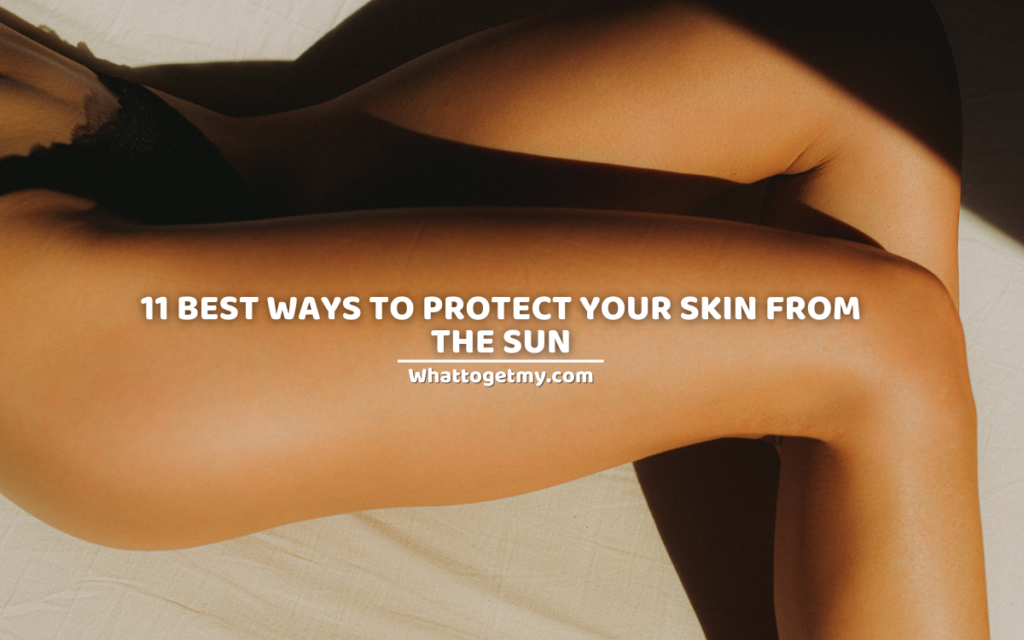Does healthy hair dry slow or fast? 6 explanations.
WhatToGetMy Instructional Article
- How quickly your hair dries depends on several factors. Slow or fast-drying hair is not a definitive test for hair health. Keep reading to find out if healthy hair dry slow or fast.
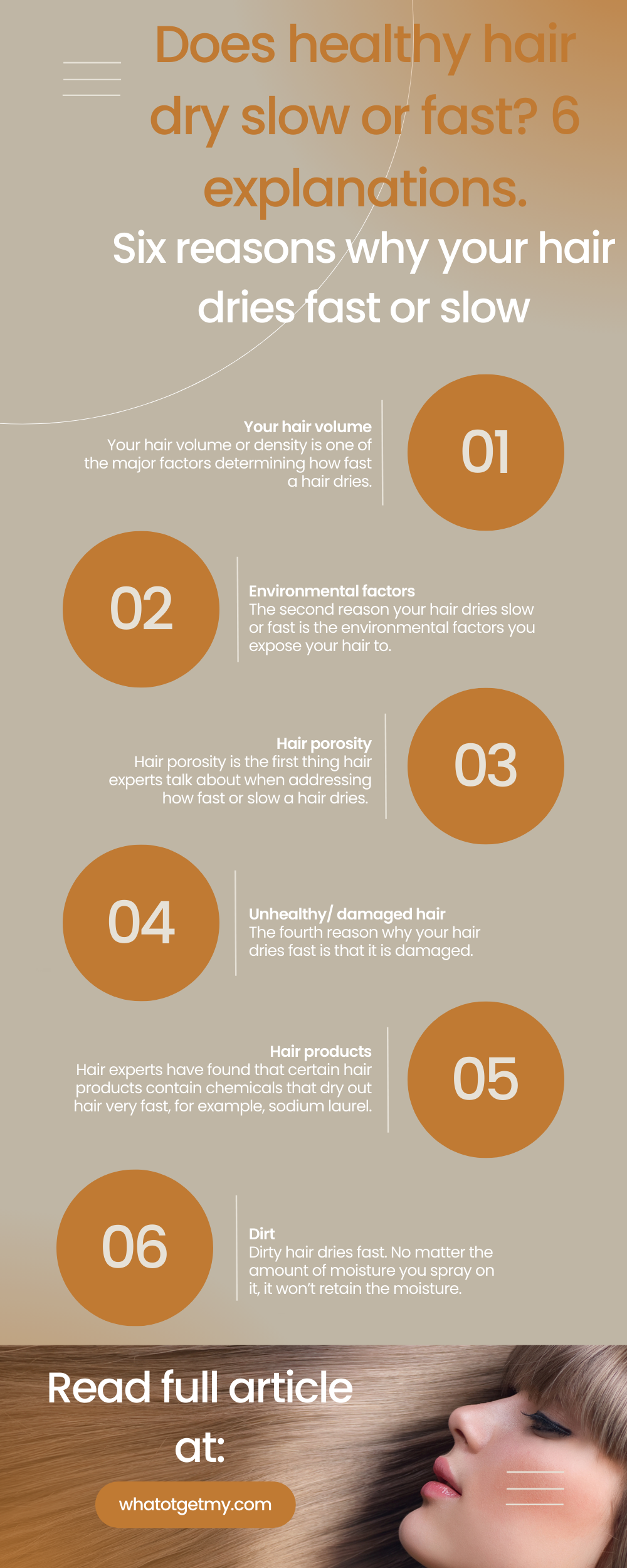
Our hair and how we choose to wear it is a valuable part of our body image. It is only right to worry about its health. It is ok to ask, “is my hair healthy or not?” given the many misconceptions about what healthy hair looks like. People often describe healthy hair as long, shiny, voluminous, and strong enough to withstand much manipulation. But this isn’t the case for everyone. Not all of us are born with voluminous hair or straight hair. Some of us have sensitive scalps that can’t handle much manipulation on our hair or have hair that doesn’t absorb much products like other types of hair would. Does it mean that we have unhealthy hair? Absolutely not!
When it comes to how fast or slow your hair dries, it depends on many factors that may or may not reflect your hair’s health. Before you get all worked up about your hair, here are the six main reasons your hair dries fast or slow.
Your hair volume
Table of Contents
Your hair volume or density is one of the major factors determining how fast a hair dries. It should be easy to guess which hair will dry faster between voluminous and less voluminous hair. The less hair on their scalp, the easier it is for air to penetrate through hair. Low-density hair does not hold on to water like voluminous hair.
Genetics or environmental factors determine how much hair a person has on their head. Many people do not have lots of hair naturally. You should be concerned if you had a fuller scalp and experienced lots of hair loss. You are either handling your hair poorly or having some underlying health condition.
Environmental factors.
The second reason your hair dries slow or fast is the environmental factors you expose your hair to. For example, in dry, hot, and windy countries, it is difficult for hair to retain moisture due to low humidity, high evaporation rate, or extremely windy conditions. People in such countries have alternative ways to lock in moisture in their hair. Scarfs, clay, extended hair treatments, and many protective hairstyles have been traditionally used in such climes to lock in moisture in the hair.
Secondly, when you expose your hair to excessive heat, salty water on beaches, or chemicals in swimming pools, your hair tends to dry faster. Environmental conditions can affect the health of your hair if you don’t take measures to protect it.
Hair porosity.
Hair porosity is the first thing hair experts talk about when addressing how fast or slow a hair dries. Hair porosity simply describes a person’s hair’s ability to absorb and retain moisture and oil. Low porosity hair dries faster than high porosity hair. People with low porosity hair have a hair structure that doesn’t easily absorb nor retain moisture. Hair porosity is either caused by genetics or hair care methods.
How do you know you have low porosity hair?
- Your hair is difficult to process and style.
- It takes you a long time to wash and treat.
- Product hardly gets absorbed into your hair such that you can rub them out of it.
There is a popular test for hair porosity you might want to try:
- Take a clean and dry strand of your hair and place it into a cup of clean water.
- If your strand floats for a while before attempting to sink, it sure means you have low porosity hair.
- If the strand sinks but stays in the middle of the cup for long, it shows medium porosity.
- If the strands sink to the bottom of the cup in no time, you have high porosity hair.
Unhealthy/ damaged hair.
The fourth reason why your hair dries fast is that it is damaged. Split ends, excessive hair breakage, or hair loss are all signs of damaged hair. If your hair cuticles are damaged, your hair won’t be able to retain water. Secondly, if your scalp has less hair, it dries faster.
Hair products.
Hair experts have found that certain hair products contain chemicals that dry out hair very fast, for example, sodium laurel. If you have low porosity hair and are using products with certain types of alcohol, your hair will dry out faster than you blink. Secondly, some hair types cannot withstand bleaching products. If you notice that your hair becomes drier and tends to break easily when you bleach it, it is your cue to stop. Try to learn more about hair products that suit your hair type.
Dirt.
Dirty hair dries fast. No matter the amount of moisture you spray on it, it won’t retain the moisture. When your hair has much products and dirt clogging your scalp and cuticles, they act as a barrier for your hair to receive nutrients, and the longer you leave your hair dirty, the more you suffocate your scalp and hair cuticles. If you’ve not washed your hair for a while, you might need to do something about it.
How can you know if your hair is healthy?
Now that we’ve concluded that healthy hair dries slowly or fast depending on its texture and other factors, you might want to know the signs of healthy hair. There are many ways to know if you have healthy hair, but we will mention the top three signs of healthy hair.
Growth.
The first way to know if your hair is healthy is to know if it’s growing. Every hair goes through a four-stage life cycle: the growth stage, degenerative stage, aging stage, and shedding stage. When your hair experiences less growth and more aging and shedding stages, you have a hair issue to deal with. According to hair experts, a person’s hair should grow about 6 inches in length. For those with kinky hair, this length may seem exaggerated. However, what’s important is to notice a substantial hair growth within a year.
Minimal hair loss.
Hair loss is considered a natural and daily phenomenon. On average every day, a person is expected to shed about 50-125 strands of hair. These hair strands are expected to grow once your hair has passed its resting stage. The problem lies where you experience excessive hair loss and little regrowth or weak regrowth. If you lose more than a hundred hair strands daily and aren’t growing as fast as they are, you might get bald in no time. Healthy hair experiences minimal hair loss.
Elasticity.
Every healthy hair should have stretchability. Hair elasticity refers to a person’s natural hair stretch. Your hair elasticity determines how well your hair is styled and managed. Experts say that hair stretches due to the moisture in the hair cortex. More moisture equals more stretch. Hair with good elasticity experiences little breakage, while hair that loses its elasticity becomes more brittle and prone to breakage. Your hair elasticity can be affected by environmental factors, bleach and other forms of chemicals, and hair straighteners.
Other signs include natural glow, detangling quality, minimal split ends, and softness and moistness.
How to keep healthy hair.
Aside from good hair genes, there are several things you can do to keep healthy hair, and they are;
Learn about your hair type.
One of the main reasons why people fail to keep healthy hair is because they don’t understand their hair and how to manage it. They don’t understand their porosity level, the type of oil and water-based moisturizers that suit their hair type, or how to comb and style them properly. Their lack of insight makes them handle their hair the way other people handle theirs, even when it’s not ideal. They use bleaches or make certain hairstyles to conform to trends while their hair suffers.
Detangle hair before washing or styling.
We all wash our hair. The best way to retain your hair length and have a scalp full of healthy hair is to detangle it before washing and styling it properly. Detangling your hair frees your hair strands for proper washing. It also reduces unnecessary hair breakage. People with frizzy hair should abide by this rule. If you do not know how to detangle hair properly, please research more about it. There are tons of helpful videos online.
Condition hair after washing it.
We cannot emphasize enough the need for conditioners. Many shampoo or hair washing agents dry the hair after washing. You need a condition that can moisturize and soften your hair.
Deep condition your hair.
Ordinary conditioners cannot nourish your hair strands enough. Deep conditioning helps you to treat all layers of your hair. There are many natural ways to make deep conditioners. There are also many good deep conditioning products on the market. The main reason for deep conditioning is to restore your hair’s natural glow and strengthen your hair roots and cuticles.
Avoid excessive manipulation.
Many of us subject our hair to excessive manipulations, whereas our hair might not have the ability to withstand a certain level of tension. People that manipulate their hair often risk having split ends, weak strands, hair breakage, or excessive hair loss from the root, which could eventually result in a situation called alopecia.
Have a healthy diet.
Your body, and hair, respond to what you eat. Several meals contain minerals, fatty acids, and essential vitamins that could help you maintain strong and healthy hair. Minerals such as magnesium, zinc, and biotin boost hair strength and enhance natural shine. Fatty acids such as Omega-3s and vitamins like B6 & 12 are important to the health and nourishment of your hair. Experts advise that people eat food with a high content of these nutrients, fatty acids, and vitamins. Meat, poultry products, fish, spinach, beans, lentils, and soy products are examples of meals that contain what your hair needs.
Minimize stress.
We are not immune to stress; however, we should avoid excessive stress. It can drastically affect your hair’s health and overall well-being. Extreme pressure can push large numbers of hair follicles into a degenerative stage. In a few months, those hair follicles will age and fall off. A person who experiences high levels of stress is at a higher risk of more hair loss than hair growth. People in this situation begin to complain that their hair is no longer fuller and has lost its shine. Your hair cannot be healthy when you are not. High-stress levels steal your health.
Limit your use of hair chemicals.
Many people abuse hair products that contain toxic hair chemicals in them. These products include hair dyes and relaxers. Toxic chemicals such as ammonia, hydrogen peroxide, and p-phenylenediamine can result in potential health problems such as asthma, endocrine disruptor, birth defects, skin irritation, liver and blood toxicity, various allergic reactions, eye injury, pregnancy loss, and different types of cancers.
Developing ill health due to your hair products will not do your hair any good in the long run. Bad health equals bad hair (in most cases). Another essential point to note about these chemicals is that for them to work on your hair, they first break down your hair’s physical properties, rendering it weak and prone to brittleness and breakage.
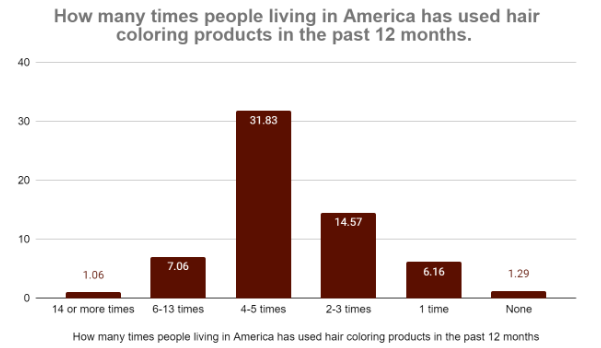
Source: Statista.
Concluding remarks.
- How fast or slow your hair dries is not always a reflection of a person’s hair health.
- Many factors influence how slow or fast a person’s hair dries, such as; your hair volume, environmental qualities, hair products, and dirt.
- There are many signs of healthy hair, but three signs top them all: growth, minimal shedding, and elasticity.
- You can have healthy hair by doing the following; improving your diet, learning about your hair, washing your hair when necessary, and detangling your hair correctly before washing and styling.
- Just in case you have hair stylist friends, here are some lovely hairstylist gifts you could get for them.
17 MINUTES
ESTIMATED TIME DESIGNING AND UPLOADING THIS ARTICLE
9 HOURS 35 MINUTES
ESTIMATED TIME RESEARCHING AND WRITING THIS ARTICLE
You Might Also Like

19 Best Gifts For Statisticians
Find the best gifts for statisticians in our unique gift selection, for the awesome statistician in your life. Whether the statistician is a maths statistician or a statistics teacher, you are sure to find something appealing in the gifts we have specially selected for you.

How to make my boyfriend feel special on his birthday
How to Make My Boyfriend Feel Special on His Birthday WhatToGetMy Instructional Article You want to make your boyfriend feel special and loved because his birthday is coming up. You feel that because he treats you so well you want to repay him by making
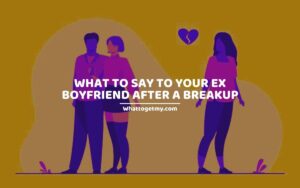
11 Ideas: What to Say to Your Ex Boyfriend After a Breakup
11 Ideas: What to Say to Your Ex Boyfriend After a Breakup WhatToGetMy Instructional Article Breakup is a tremendous experience to go through, no matter the love, years of dating. A breakup can happen at any point in time, but what do you say to

5 REASONS WHY MOTHERS ARE THE PIECE THAT HOLDS A FAMILY TOGETHER.
5 REASONS WHY MOTHERS ARE THE PIECE THAT HOLDS A FAMILY TOGETHER. WhatToGetMy Instructional Article The emotional nucleus of the family is its mother. They act as a haven for everyone’s emotions and try their utmost to protect us from harm. What are the justifications

How to Ask For a Gift From Boyfriend
How to Ask For a Gift From Boyfriend WhatToGetMy Instructional Article My boyfriend never bought me a gift is a common sentence we hear these days. We don’t know why, but men have difficulties to just go to the store and buy a gift. It’s
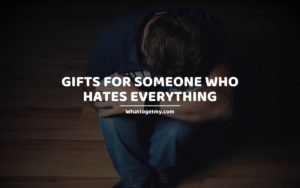
29 Perfect Gifts For Someone Who Hates Everything
A person who hates everything could have one or several reasons for hating everything. It could be because they are just angry people, or that they don’t like gifts, or they don’t know what they want or they have everything. The key to choosing the

How to Decorate a Bridal Shower Chair – 15 Ideas to Jazz Up Your Bridal Shower Chair
How to Decorate a Bridal Shower Chair – 15 Ideas to Jazz Up Your Bridal Shower Chair WhatToGetMy Instructional Article Someone special in your life is a bride-to-be, and you are planning a bridal shower to send them off properly. Hosting any event can be
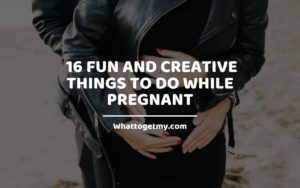
16 Fun and Creative Things to Do While Pregnant?
16 Fun and Creative Things to Do While Pregnant WhatToGetMy Instructional Article Pregnancy is a unique time. On one hand, you have limited options for having fun, but on the other, you’ve got plenty of time. While you can’t partake in certain activities you once

So there is a woman in your life who loves being outdoors. She loves taking part in physical and recreational outdoor activities or hobbies. The weather does not seem to bother her at all. Where there is an adventure she feels she has to experience

What to do with annoying husband; 7 helpful tips.
What to do with annoying husband; 7 helpful tips. WhatToGetMy Instructional Article If his excesses are overbearing and you’re wondering what to do with your annoying husband, keep reading to find interesting ideas on how to stop an annoying husband from driving you nuts. “Your

